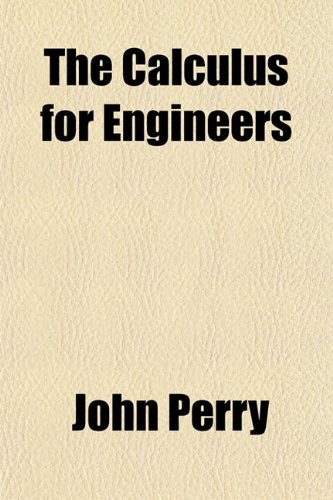
The Calculus for Engineers
by John Perry
Publisher: E. Arnold 1897
ISBN/ASIN: 1151942162
Number of pages: 408
Description:
This book describes what has for many years been the most important part of the regular course in the Calculus for Mechanical and Electrical Engineering students at the Finsbury Technical College. The students in October knew only the most elementary mathematics, many of them did not know the Binomial Theorem, or the definition of the sine of an angle.
Download or read it online for free here:
Download link
(multiple formats)
Similar books
 Entertainment Engineering
Entertainment Engineeringby John W. Wesner - ETC Press
We look at the entertainment industry in general, with a focus on delighting the customers. We ask what is unique about the domain Entertainment, we look at the broad scope of Entertainment, and ask the reader about their entertainment preferences.
(9021 views)
 Handbook of Mathematical Functions
Handbook of Mathematical Functionsby M. Abramowitz, I. A. Stegun - GPO
Students and professionals in the fields of mathematics, physics, engineering, and economics will find this reference work invaluable. A classic resource for special functions, standard trig, and exponential logarithmic definitions and extensions.
(32905 views)
 Optimization Methods for Engineering Design
Optimization Methods for Engineering Designby A.R. Parkinson, R.J. Balling, J.D. Hedengren - Brigham Young University
In this text we discuss a computer-based approach to design optimization, to search for the best design according to criteria that we specify. Further, we employ sophisticated algorithms that enable the computer to efficiently search for the optimum.
(9879 views)
 Engineering Tables
Engineering Tables- Wikibooks
This is a shared appendix with tables for use in book on engineering, math and science. Topics: Integral Transforms; Mathematical Tables; Statistical Tables; Mechanical Engineering; Electrical and Electronic Engineering; Computer Engineering.
(10773 views)